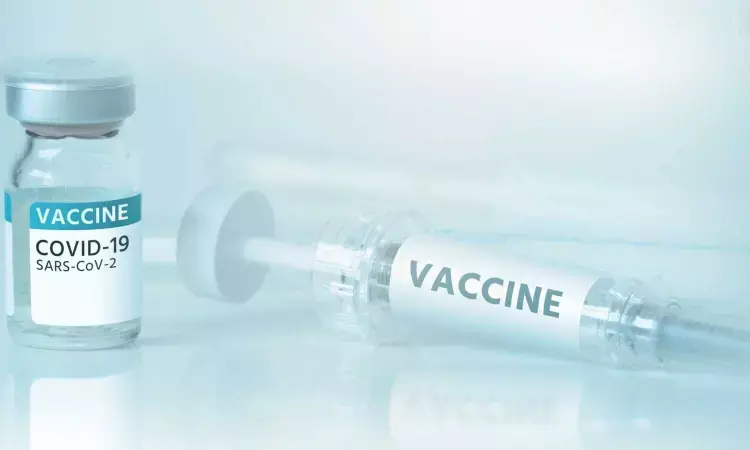- Home
- Medical news & Guidelines
- Anesthesiology
- Cardiology and CTVS
- Critical Care
- Dentistry
- Dermatology
- Diabetes and Endocrinology
- ENT
- Gastroenterology
- Medicine
- Nephrology
- Neurology
- Obstretics-Gynaecology
- Oncology
- Ophthalmology
- Orthopaedics
- Pediatrics-Neonatology
- Psychiatry
- Pulmonology
- Radiology
- Surgery
- Urology
- Laboratory Medicine
- Diet
- Nursing
- Paramedical
- Physiotherapy
- Health news
- Fact Check
- Bone Health Fact Check
- Brain Health Fact Check
- Cancer Related Fact Check
- Child Care Fact Check
- Dental and oral health fact check
- Diabetes and metabolic health fact check
- Diet and Nutrition Fact Check
- Eye and ENT Care Fact Check
- Fitness fact check
- Gut health fact check
- Heart health fact check
- Kidney health fact check
- Medical education fact check
- Men's health fact check
- Respiratory fact check
- Skin and hair care fact check
- Vaccine and Immunization fact check
- Women's health fact check
- AYUSH
- State News
- Andaman and Nicobar Islands
- Andhra Pradesh
- Arunachal Pradesh
- Assam
- Bihar
- Chandigarh
- Chattisgarh
- Dadra and Nagar Haveli
- Daman and Diu
- Delhi
- Goa
- Gujarat
- Haryana
- Himachal Pradesh
- Jammu & Kashmir
- Jharkhand
- Karnataka
- Kerala
- Ladakh
- Lakshadweep
- Madhya Pradesh
- Maharashtra
- Manipur
- Meghalaya
- Mizoram
- Nagaland
- Odisha
- Puducherry
- Punjab
- Rajasthan
- Sikkim
- Tamil Nadu
- Telangana
- Tripura
- Uttar Pradesh
- Uttrakhand
- West Bengal
- Medical Education
- Industry
mRNA vaccines effective against Covid-19 associated illness among children: JAMA

Children (5 to 11 years) who received COVID-19 mRNA vaccinations showed evidence in avoiding SARS-CoV-2 infection and life-threatening COVID-19-related diseases, says an article published in Journal of American Medical Association.
In children aged 5 to 11 years, evidence of the effectiveness and safety of messenger RNA (mRNA) COVID-19 vaccinations has been accumulating. Clinicians, families, and policymakers will benefit from knowing this information. This study was carried out by Atsuyuki Watanabe and colleagues as a systematic review and meta-analysis to assess the effectiveness and safety of mRNA COVID-19 vaccinations in children aged 5 to 11 years.
On September 29, 2022, the databases for PubMed and Embase were searched without regard to language. Children aged 5 to 11 years who were vaccinated compared. unvaccinated and reporting effectiveness or safety results were included in randomized clinical trials and observational studies. Studies focusing just on vaccination outcomes in kids—without a control group—were also included. Each study's pertinent data was independently retrieved by two researchers. A random-effects model was used to summarize odds ratios (ORs) for effectiveness and safety outcomes as well as occurrences of adverse events (AEs) following vaccination. The reporting criteria for this study were the Preferred Reporting Items for Systematic Reviews and Meta-analyses and Meta-analysis of Observational Studies in Epidemiology.
The key findings of this study were:
Included were two randomized clinical trials, 15 observational studies, 10 935 541 children who had had vaccinations, and 2 635 251 children who had not.
Children who received the two-dose mRNA COVID-19 immunization had a decreased probability of developing SARS-CoV-2 infections with or without symptoms, symptomatic SARS-CoV-2 infections, hospitalizations, and multisystem inflammatory syndrome than those who had no vaccination.
Children who have received vaccinations were the subjects of two randomized clinical trials and five observational studies.
Following the first and second injections, the majority of immunized youngsters suffered at least 1 local adverse reaction (AE).
Compared to a placebo, vaccination was linked to a greater risk of any AEs.
Following the second injection, the incidence of adverse events (AEs) preventing routine daily activities was predicted to be 8.8% and myocarditis to be 1.8 per million.
Even while local AEs were common in youngsters, severe AEs were uncommon, and the majority of AEs went away in a few days.
The findings can assist in educating medical professionals, other clinicians, parents, and policy makers on the efficacy and safety of COVID-19 vaccine for kids between the ages of 5 and 11. To track the long-term security of mRNA vaccines, more trials with extended follow-up are required.
Reference:
Watanabe, A., Kani, R., Iwagami, M., Takagi, H., Yasuhara, J., & Kuno, T. (2023). Assessment of Efficacy and Safety of mRNA COVID-19 Vaccines in Children Aged 5 to 11 Years. In JAMA Pediatrics. American Medical Association (AMA). https://doi.org/10.1001/jamapediatrics.2022.6243
Neuroscience Masters graduate
Jacinthlyn Sylvia, a Neuroscience Master's graduate from Chennai has worked extensively in deciphering the neurobiology of cognition and motor control in aging. She also has spread-out exposure to Neurosurgery from her Bachelor’s. She is currently involved in active Neuro-Oncology research. She is an upcoming neuroscientist with a fiery passion for writing. Her news cover at Medical Dialogues feature recent discoveries and updates from the healthcare and biomedical research fields. She can be reached at editorial@medicaldialogues.in
Dr Kamal Kant Kohli-MBBS, DTCD- a chest specialist with more than 30 years of practice and a flair for writing clinical articles, Dr Kamal Kant Kohli joined Medical Dialogues as a Chief Editor of Medical News. Besides writing articles, as an editor, he proofreads and verifies all the medical content published on Medical Dialogues including those coming from journals, studies,medical conferences,guidelines etc. Email: drkohli@medicaldialogues.in. Contact no. 011-43720751


